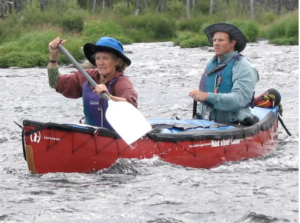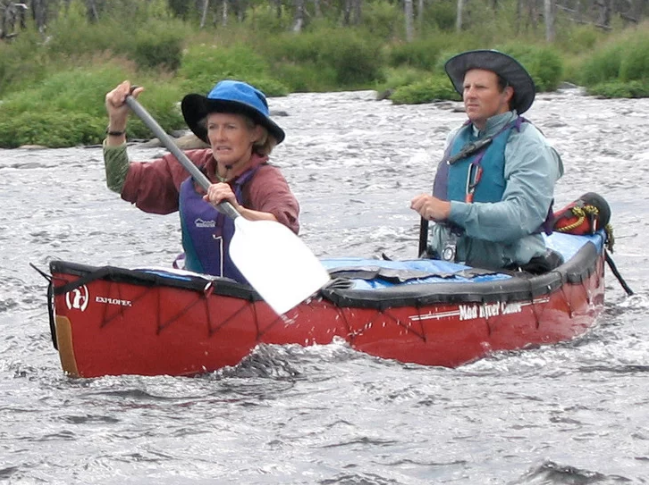The two campers who died in a grizzly bear attack in Banff National Park in Canada were able to send a desperate message before succumbing to their injuries.”Bear attack bad,” the emergency message read, according to Colin Inglis, the uncle of Doug Inglis — who was found dead last weekend alongside his longtime partner, Jenny Gusse, and their dog.

The dire message was sent over a Garmin inReach satellite communicator last Friday night. It was received along with an SOS signal, triggered by someone holding the device’s emergency button for three seconds.”So one of them had entered that [text] into the inReach” manually, Colin Inglis told NPR.
The chilling message stands as direct evidence of the moment when a backpacking trip to enjoy fall foliage became a tragedy. The case is also something of a mystery: How did two veteran backpackers known for doing everything correctly become the victims of a rare bear attack?
“This incident is the first grizzly bear caused fatality recorded in Banff National Park in decades,” Parks Canada said in a message to NPR.
The couple knew the terrain and had bear spray
It seems that not even the best preparations could have prevented the fatal attack. When a Wildlife Human Attack Response Team reached the campsite, they found a bear-proof food bag hanging in a tree, as recommended. A discharged can of bear spray was also found at the site, implying the campers had tried to force the animal to leave.
The couple, both 62, also knew the region — Banff’s Red Deer Valley — very well.”They hiked in this area several times a year on an extended trip,” Inglis said. “They’d been in this area in the spring.”
As they made their way on a weeklong trek through Banff, the backpackers used their inReach device to send regular updates to Inglis, and to Gusse’s mother. The couple were meticulous in planning their adventures, Inglis said. They were careful by nature: In their professional life, the pair worked together in laboratories, doing agricultural research.
